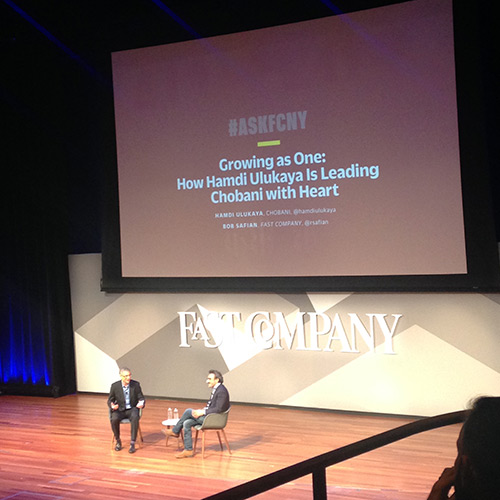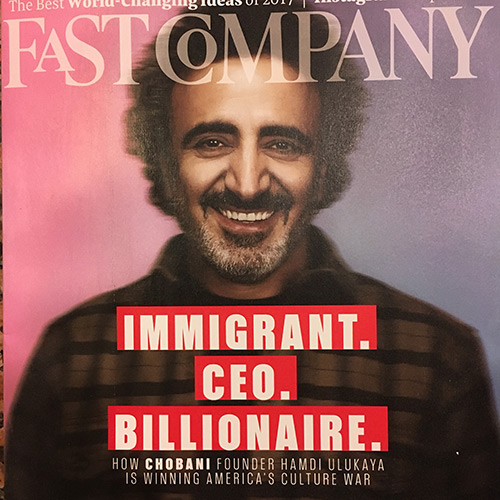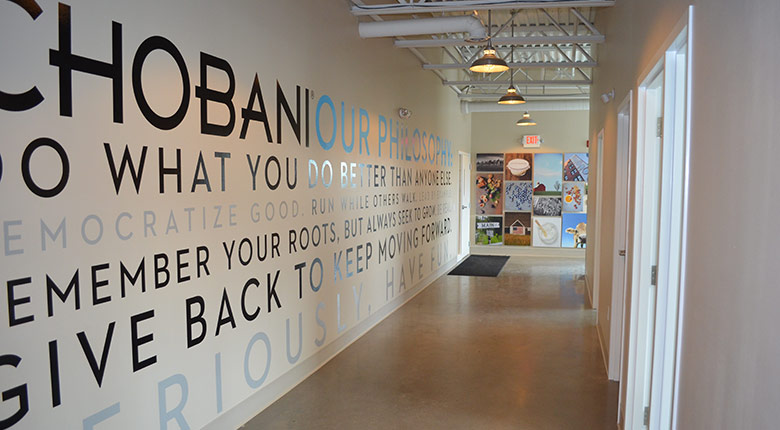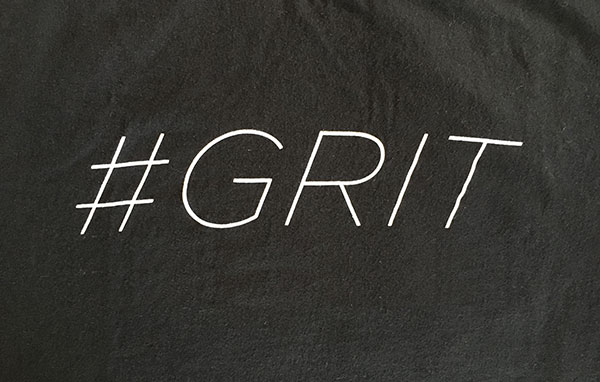Last November, I attended the Fast Company Innovation Festival at NYU. The one speaker I wanted to see was Hamdi Ulukaya, Founder and CEO of Chobani. He didn’t disappoint. Fast Company followed up that event with an April 2017 cover piece featuring Ulukaya and his full story of creating the world’s leading yogurt brand from an SBA loan and a small group of former Kraft employees who used to work at the yogurt plant he purchased in upstate NY.

One of the most famous stories Ulukaya tells is that when he was just getting started and knew nothing about how to make yogurt or how to run a company, he got the employees together to paint the outside of the plant. He started with his people. He focused inside first. He would continue to focus inside as he built the business.

Ulukaya’s philosophy of making the employee experience a priority, and trusting that such care will then translate to the product and the customer experience, really resonates with me. It’s about taking care of those around you and trusting they will convert that positive energy externally. From the Fast Company cover story by Rob Brunner:
“He [Ulukaya] has begun to forge a new kind of business leadership, one that fuses competitiveness with an unusually strong sense of compassion.”
The second aspect of Ulukaya’s approach that I admire is his desire to be close to his business. He wants to know how things work, to be in the weeds, to get his hands dirty. He wants to understand his employees, their joys and their challenges. He is not above them; rather, he stands beside them. From the event last year:
“I am a factory worker first… If I ask my employees to do something, I do it with them.”
And from the Fast Company piece:
“Ulukaya has always had trouble sitting still, and rather than spend his time at a desk, he prefers to roam the floors of his factories, chatting with workers or even sometimes standing off by himself, watching cup after cup skitter down the line to get filled, sealed, boxed, and sent in its way.”
In just 10 years since the brand launched, Ulukaya and his team have grown Chobani to 2,000+ employees and the number one Greek-style yogurt brand in the U.S. With his inside-out approach, he also:
- Reopened a Kraft yogurt factory in South Edmeston, NY, saving a core team of employees then creating hundreds of jobs
- Opened the world’s largest yogurt factory in Twin Falls, Idaho, adding 300+ jobs
- Hired immigrants as 30 percent of his workforce, from more than 15 countries, including more than 400+ refugees. Some employees are provided transportation to the plants and translators on-site.
- Gave 10 percent of the company to his employees, making some of them millionaires
- Launched fully paid parental leave
In a hairy time for growing companies where we seem to hear more about culture challenges and misses by CEOs than about the nurturing and care of employees, I optimistically turn to Ulukaya and the Chobani story for guidance.


